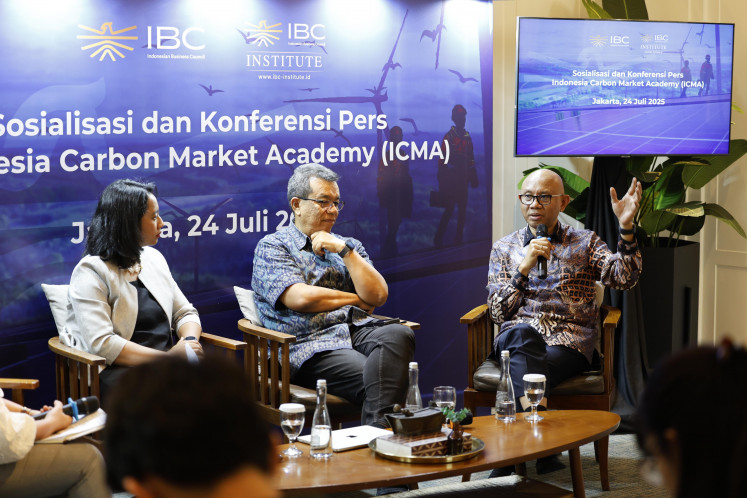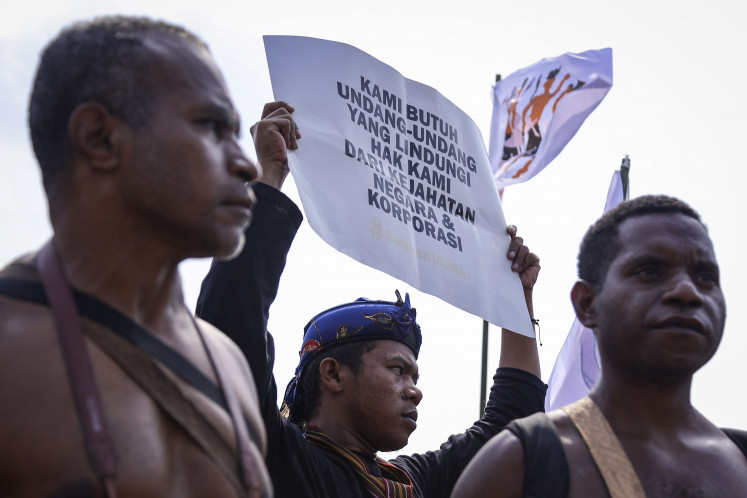Popular Reads
Top Results
Can't find what you're looking for?
View all search resultsPopular Reads
Top Results
Can't find what you're looking for?
View all search resultsBudget efficiency as opportunity for bureaucratic transformation
Improving civil servant capabilities through reskilling and upskilling becomes key to creating an adaptive and inclusive bureaucracy.
Change text size
Gift Premium Articles
to Anyone
T
he implementation of Presidential Instruction No. 1/2025 targeting budget efficiency of Rp 306.69 trillion (US$18.6 billion) presents both challenges and opportunities for Indonesia. While aimed at maintaining fiscal stability, the budget cuts risk undermining public service quality if not balanced with strategies to enhance civil servants' capacity.
Data from the Financial and Development Supervisory Agency (BPKP) reveals 68 percent of ministries lack real-time expenditure tracking systems, exacerbating data asymmetry in budget planning. This phenomenon confirms the urgency for technology-based bureaucratic transformation (GovTech) and human resource strengthening as the backbone of reform.
This challenge grows more complex with the controversy over the postponed 2024 civil servant recruitment. Rather than an obstacle, this moment should be utilized to prepare prospective civil servants through technology-based training, ensuring their readiness to contribute from day one. Improving civil servant capabilities through reskilling and upskilling becomes key to creating an adaptive and inclusive bureaucracy.
Investment in human resource training is a key factor in productivity improvement. In the bureaucratic context, budget efficiency should be directed toward building civil servant competencies, particularly among younger generations, through coding boot camps, data literacy programs and mastery of technologies like big data, AI and blockchain.
Singapore's Smart Nation initiative proves that intensive civil servant training can improve public service efficiency by 60 percent. In Indonesia, the Administrative and Bureaucratic Reforms Ministry notes that only 35 percent of government agencies have trained IT personnel. Yet, a McKinsey & Company study shows full e-Government implementation could yield 300 percent return on investment (ROI) within five years.
Industry 5.0, emphasizing human-machine collaboration (human-centric), is relevant for bureaucratic reform. This concept aligns with socio-technical systems, stressing harmony between technical and social aspects. For instance, AI-based predictive budget allocation at the Public Works Ministry reduced project costs by 34 percent, but this success requires civil servants capable of data interpretation and strategic decision-making. Reskilling must encompass not only technical skills, but also ethics in technology use.
Meanwhile, Industry 6.0, which integrates AI, quantum computing and digital twins, demands infrastructure and regulatory readiness. Indonesia lags in internet access equality as 40 percent of villages lack quality connections. Therefore, civil servant training must be accompanied by internet subsidy policies and public digital literacy to prevent bureaucratic transformation from widening these gaps.



















